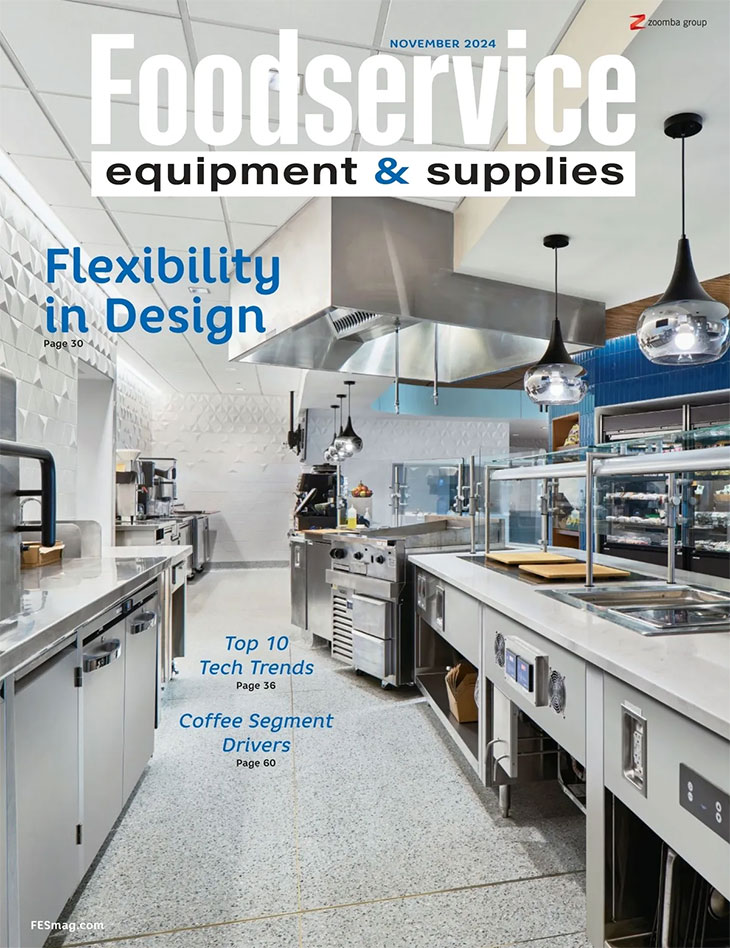Managing a foodservice operation's repair and maintenance expenses requires an understanding of how service agents structure their invoices and fees. The more operators understand, the better they can manage their costs. These different billing practices can make it hard for servicers and operators to have a fruitful conversation about costs.
It's normal for people and businesses alike to shop around for the best deal. In some sectors of the foodservice industry, this can be relatively easy. When purchasing an oven or a refrigerator, for example, operators can reach out to a handful of dealers to easily compare prices and features.
Comparison shopping for service and maintenance on those same pieces of equipment is much more complicated. Even among reputable firms certified by the Commercial Food Equipment Service Association (CFESA) billing practices can differ widely, making it difficult to get a one-to-one comparison between invoices from different firms.
These different billing practices can make it hard for servicers and operators to have a fruitful conversation about costs, according to Jeremy Allen, vice president of operations for Indianapolis-based service agency Vanco. "That may be one of the things that is sometimes difficult to get past when trying to make a proposal to a prospective customer or to an existing customer about what somebody else has offered them. It's often not apples to apples because of the way service agents charge."
Billing practices differ from the moment a service call is scheduled, says Allen. All service agencies must bill to cover the cost of getting a person to the job site, expenses like owning and maintaining their fleet and the time it takes a skilled, trained technician to drive to a job.
Some service agencies cover these costs through a flat service charge — usually in the range of $80 to $100. Others' bills are more granular, giving separate invoice lines for mileage, travel time and a smaller flat service fee. These different practices make comparing even the basics of a bill difficult, Allen says.
He stresses, though, that many service agents will be flexible about how they bill to cover overhead. Vanco, for instance, will work with regular customers and those signing maintenance agreements to develop a billing structure that covers their costs and makes the customer happy.
Another billing difference is in how service agents charge for consumables used on a job. This is particularly important for refrigeration repair. Fixing these pieces can require using nitrogen gas to check for leaks and a torch to repair metal piping, among other things. Different service agencies account for the cost of nitrogen and torch fuel in different ways. Some operators charge a higher labor rate for refrigeration work, says Allen, while others will keep their labor rate the same and only bill for the consumables actually used.
"We break it out for transparency's sake. It also helps us keep track of our inventory for consumables but the way a lot of us break that up differs, and customers may or may not understand that," Allen says.
A similar phenomenon can be found in billing for parts and labor. Some agencies may have a lower labor rate but charge a higher markup for the parts, or vice versa. Others may charge a lower rate for parts and make up for it with an increased freight charge.
The question of what operators get for their dollar goes even deeper, particularly when it comes to labor charges. While a service agency with well educated and trained technicians may charge a higher rate than other firms, Allen stressed that customers typically get what they pay for.
"Often times the question is, 'What's your labor rate," and since everyone has to bill a labor rate it's the only thing to compare. It can be hard to communicate when proposing to a customer, that our technicians may be better trained, better troubleshooters, and able to make a faster repair, which would negate any higher labor rate costs," he says.
With all these variables — parts, labor, freight, service charge — it's takes a lot of time and effort to get an apples to apples comparison for a single repair job, says Allen. What's more, given that service agencies make their margins in different areas, a single job may not point to the most economical repair shop over the long term. Instead, operators should take a wider view of the situation.
"For any operator to get a fair comparison, you'd need to look at a collection of tickets over a period of time," says Allen. "I don't think it's fair to compare one single bill vs. another. The way we bill is going to be different from agent to agent."




